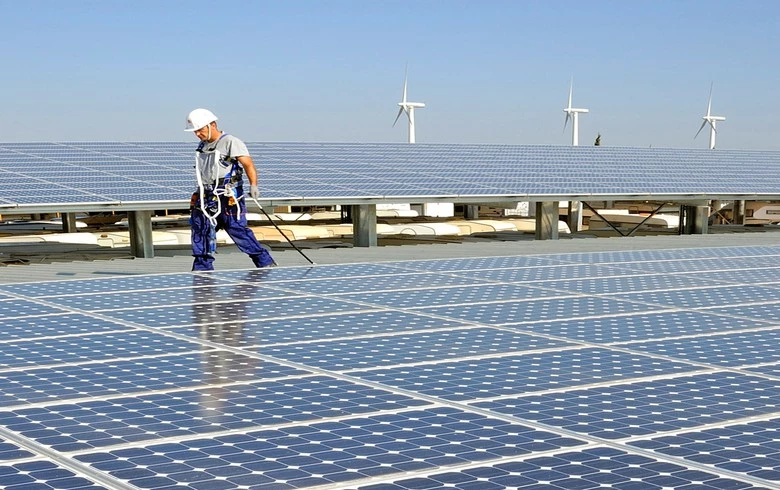“A bill on the promotion of start-ups to encourage entrepreneurship with digital content has been adopted by the Cabinet meeting and will soon be tabled in the House of People’s Representatives (HPR) for approval,” Prime Minister Youssef Chahed said on Monday.
Speaking at the closing of the Tunisian-Spanish business forum, held at the headquarters of the Tunisian Confederation of Industry, Trade and Handicrafts (UTICA), on the theme “Tunisia-Spain: Economic Reforms and Investments”, he recalled the major reforms initiated by the government to improve the climate, referring namely to the new law on investment, the law on tax benefits, the new law on PPPs, and the new banking law.
Chahed also spoke about efforts to fight against corruption and improve the security conditions in the country, saying Tunisia was chosen by the World Bank group in 2017, among 3 other countries, to receive a certificate of recognition for the efforts made to improve the investment climate.
“The Tunisian-Spanish Business Forum is a step towards achieving the guidelines adopted and an opportunity to draw on the successful Spanish experience in structural reforms,” Chahed pointed out.
He also acknowledged the support provided by Spain to Tunisia since 14 January 2011, expressing the hope that Spain’s economic presence will be strengthened in the country, by setting up new projects, besides the 67 Spanish companies already installed in Tunisia.
He urged economic operators in both countries to seize opportunities in a number of promising sectors, including manufacturing, agriculture, transport, renewable energy and tourism and communication technologies. The Prime Minister also considered that the creation of the Tunisian-Spanish Chamber of Commerce and Industry in April 2017 is a new step to increase trade between the two countries that had reached €1,216 million, making Spain the 4th largest supplier and customer of Tunisia.
For his part, Spanish Prime Minister Mariano Rajoy stressed that “the Tunisian economy is at a crucial moment”, saying that “structural reforms are always difficult and take time to give their first fruit”.
Rajoy also recalled the experience of his country which went through an acute economic crisis resulting in 5 years of recession, a sharp deterioration in production and a loss of more than 3 million jobs.
He added that “this crisis has forced Spain to put in place a rigorous plan for reforms in several areas, allowing the country to reverse the trend and return to growth, by achieving a growth rate of 3.1% in 2017 with an annual creation of 500 thousand jobs since 2014”.
Rajoy considered that maintaining this trend requires developing the resilience of the Spanish economy through strengthening financial stability, continuing the digital transformation, encouraging research and development, eliminating administrative obstacles and favouring the internationalization of Spanish companies.
The Spanish PM said Tunisia has taken courageous decisions in recent years that inspire confidence.
He reiterated his country’s commitment to strengthen its economic ties with Tunisia, saying that new credit lines will be opened to finance SMEs.
Taking part in the closing ceremony of the forum, UTICA President Samir Majoul noted that the trade relations and investment partnership between the two countries have not yet reached their potential.
“Although Spain is a major player in the European Union, its imports from Tunisia represent only 3.8% of Tunisia’s exports to the EU, and its exports are only 4.5% of Tunisia’s imports from Europe,” he noted.
He added: “similarly, Spanish investments in Tunisia remain focused on the construction materials industry and deserve to be diversified in sectors with high added value”.
“It is in this perspective that the Tunisian-Spanish Business Council, created in 2013, is today called upon to boost relations between the two business communities in order to ensure that co-operation between Tunisian and Spanish companies move from simple operations to a strategic partnership, propose new ways to co-invest and dismantle the barriers that hinder co-operation between the two countries,” he concluded.
Present at the Tunisian-Spanish Business Business Forum, Joaquín Gay de Montella Ferrer-Vidal, Vice President of the CEOE (Spanish employers’ organisation) and Maria Luisa Poncela Garcia, Spanish Secretary of State for Trade, affirmed the commitment of Spain to raise trade and co-operation with Tunisia to a level that takes into account the potential of their economies.
New credit line will be opened for SMEs
Poncela Garcia also said that a new €25-million credit line on very favorable terms will be opened to finance SMEs, urging the Tunisian authorities to continue reforms to ensure greater ease of investment.
For their part, Tunisian officials present, namely, Taoufik Rajhi, Minister to the Prime Minister in charge of monitoring major reforms, Khalil Labidi, President of the Tunisia Investment Authority (TIA) and Hichem Elloumi, Vice President of the UTICA, focused their remarks on the progress made by Tunisia in economic reforms related to investment and improvement of the business climate.
67 Spanish companies are currently installed In Tunisia, with an investment volume exceeding 1,300 MD and more than 6,581 jobs.
On the sidelines of this Forum, UTICA and the CEOE signed the renewal of the Memorandum of Understanding establishing the creation of the Tunisian-Spanish Business Council.
Another partnership agreement was signed between Siemens Gamesa and SOCOMENIN.
TunisianMonitorOnLine (Source:TAP)




